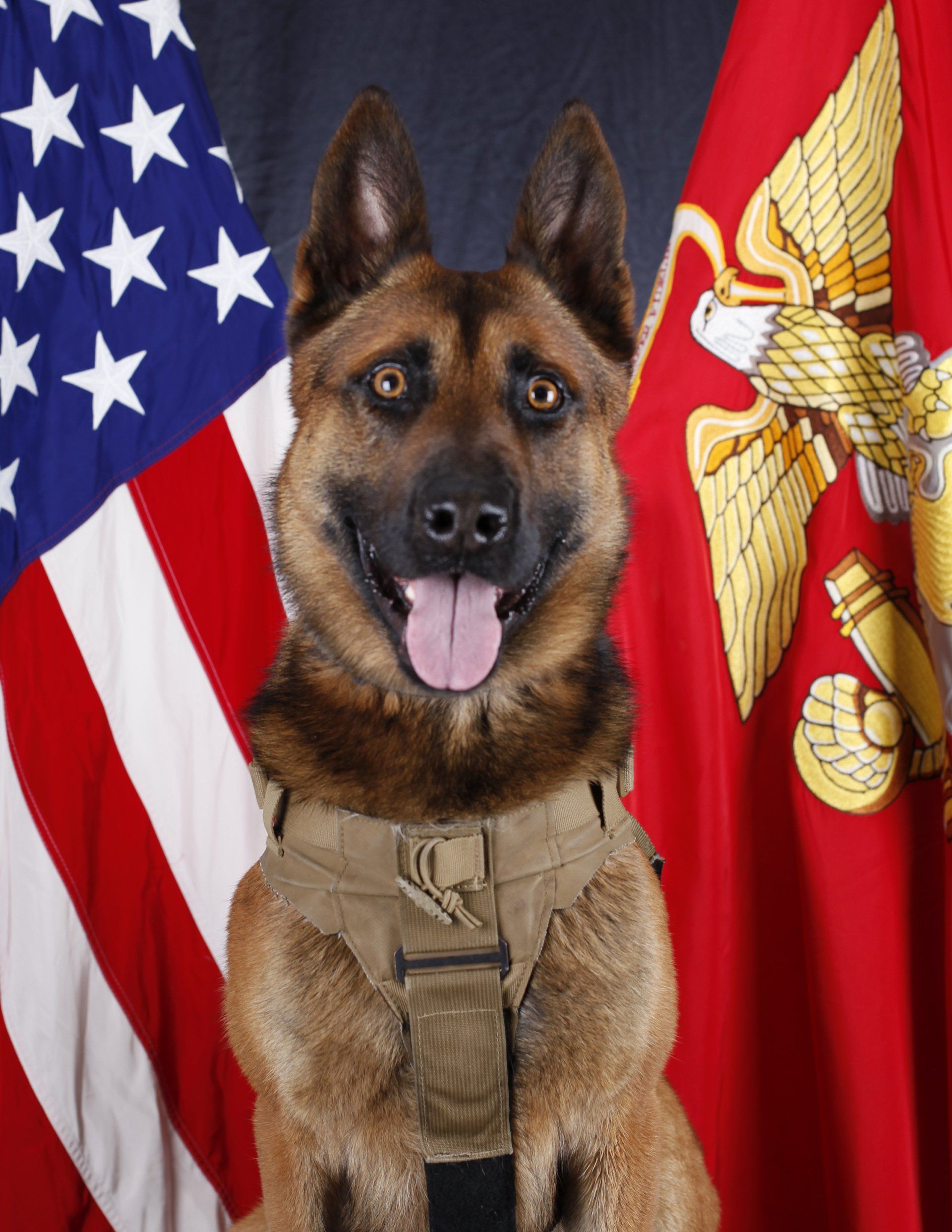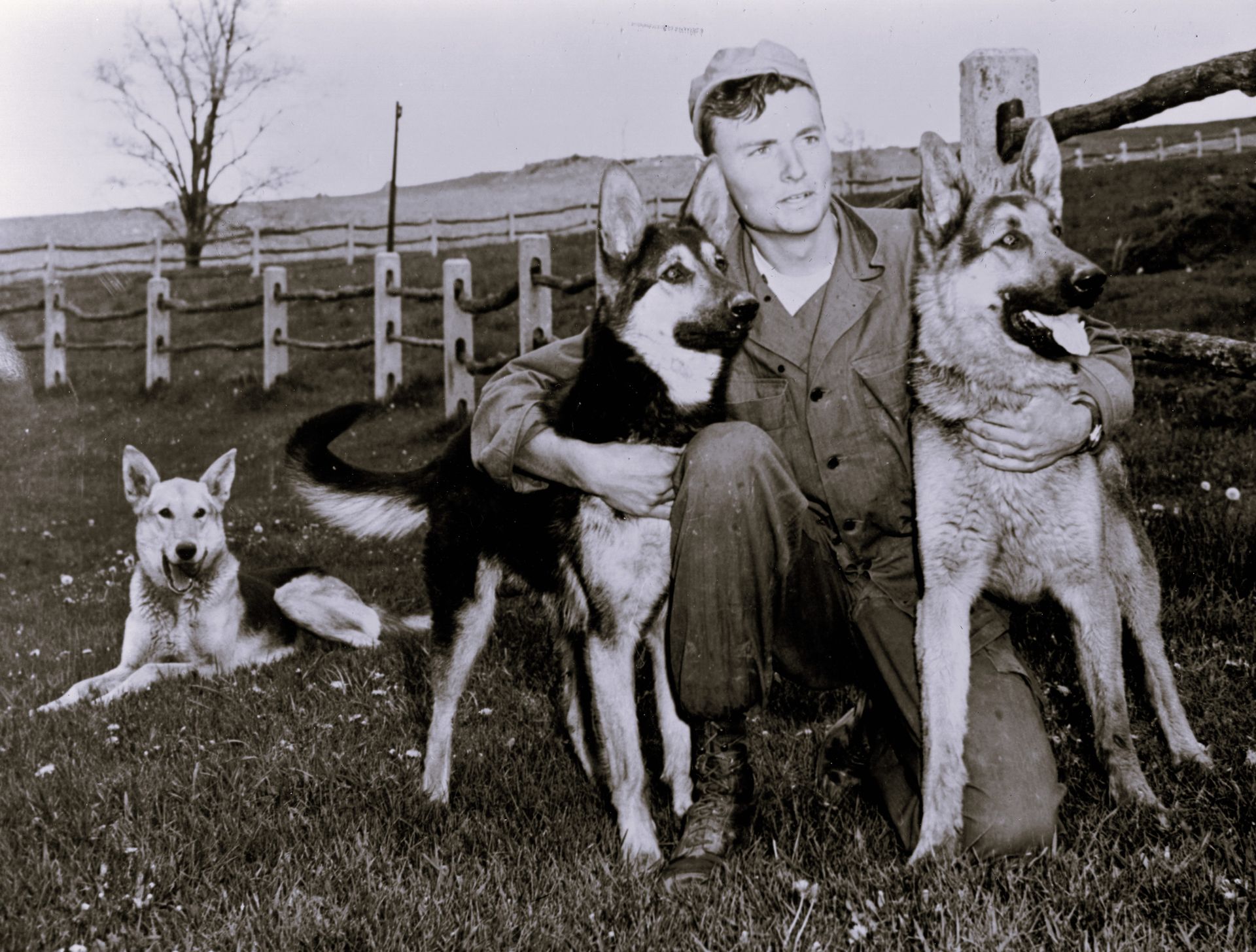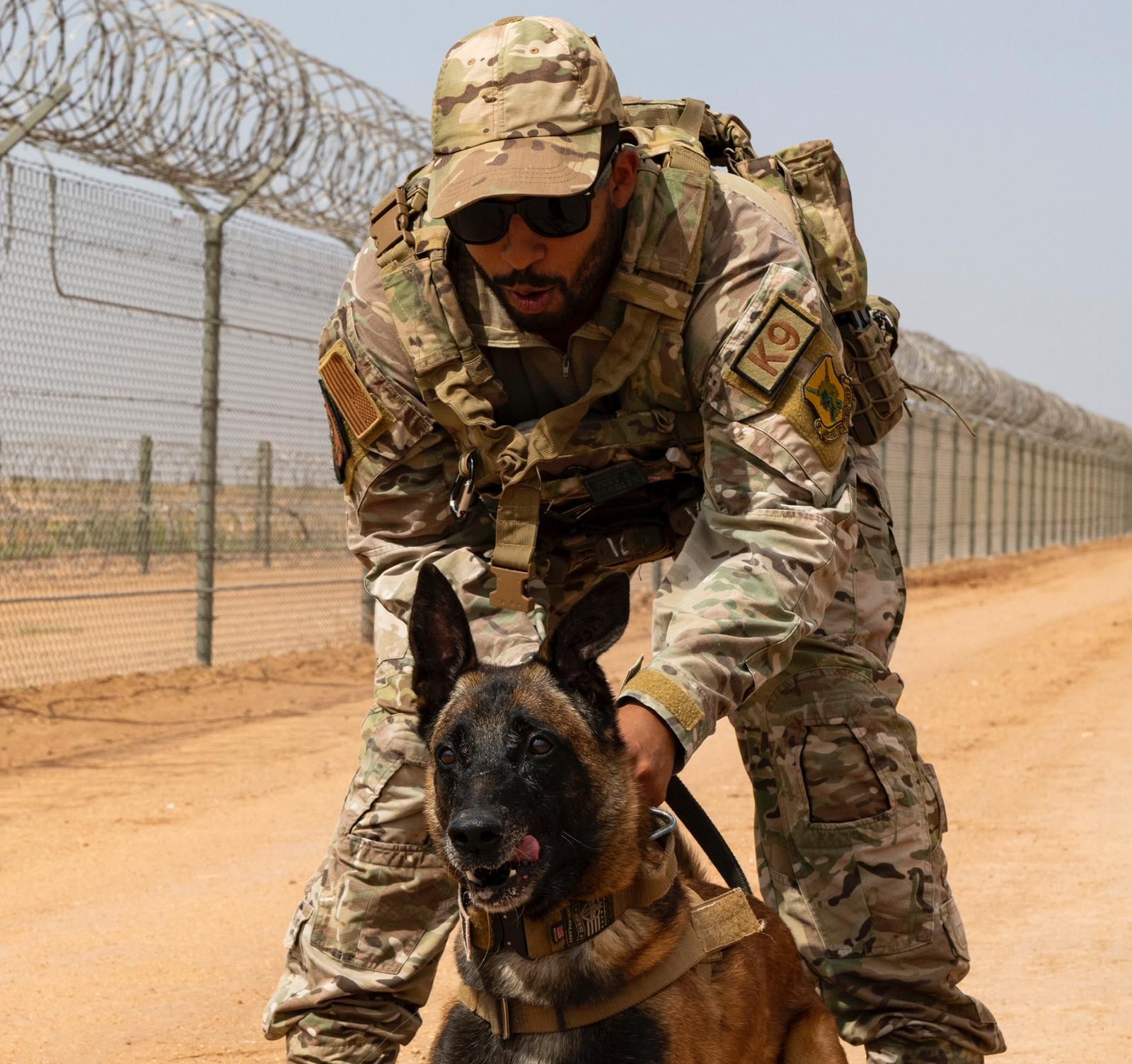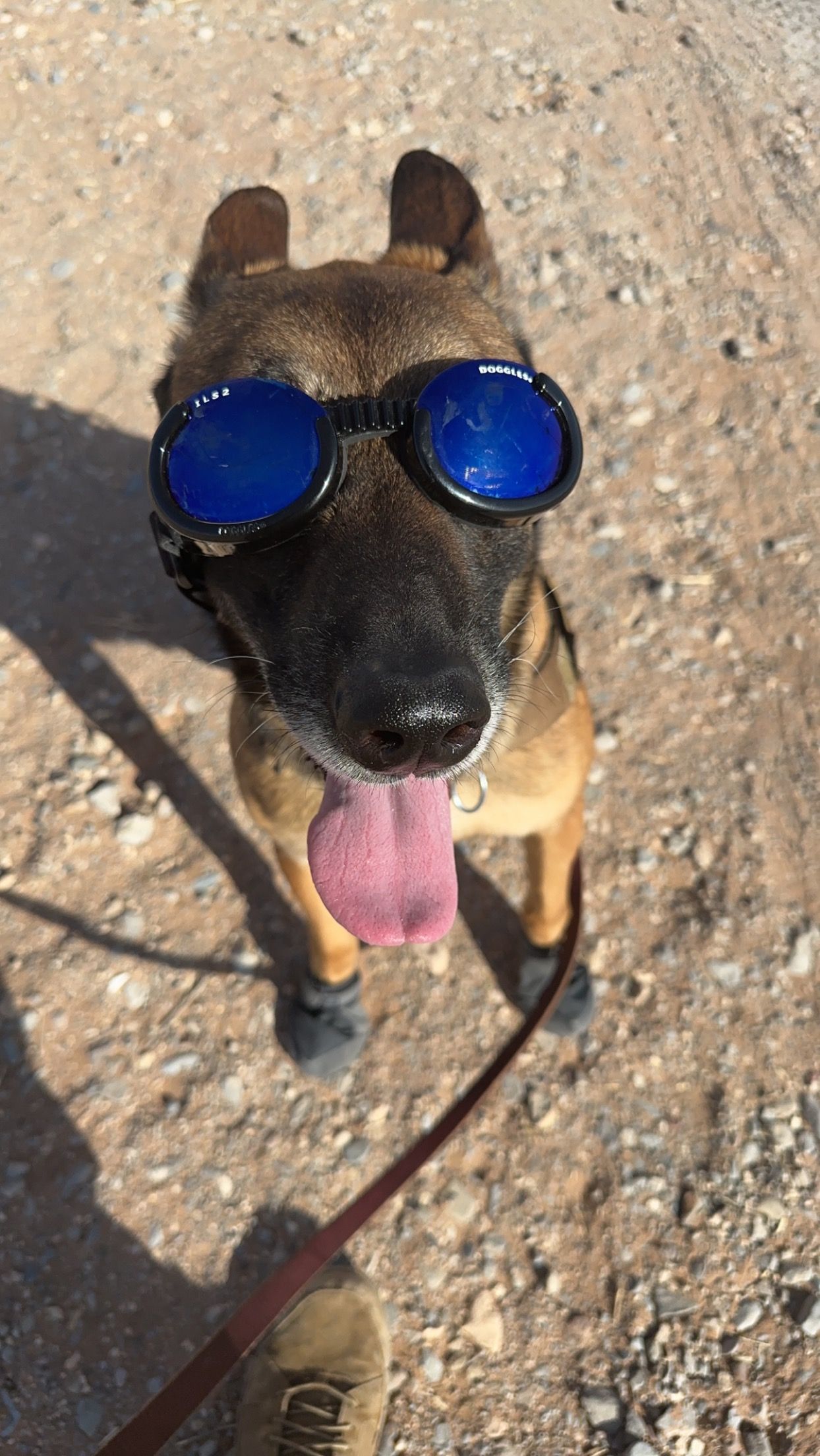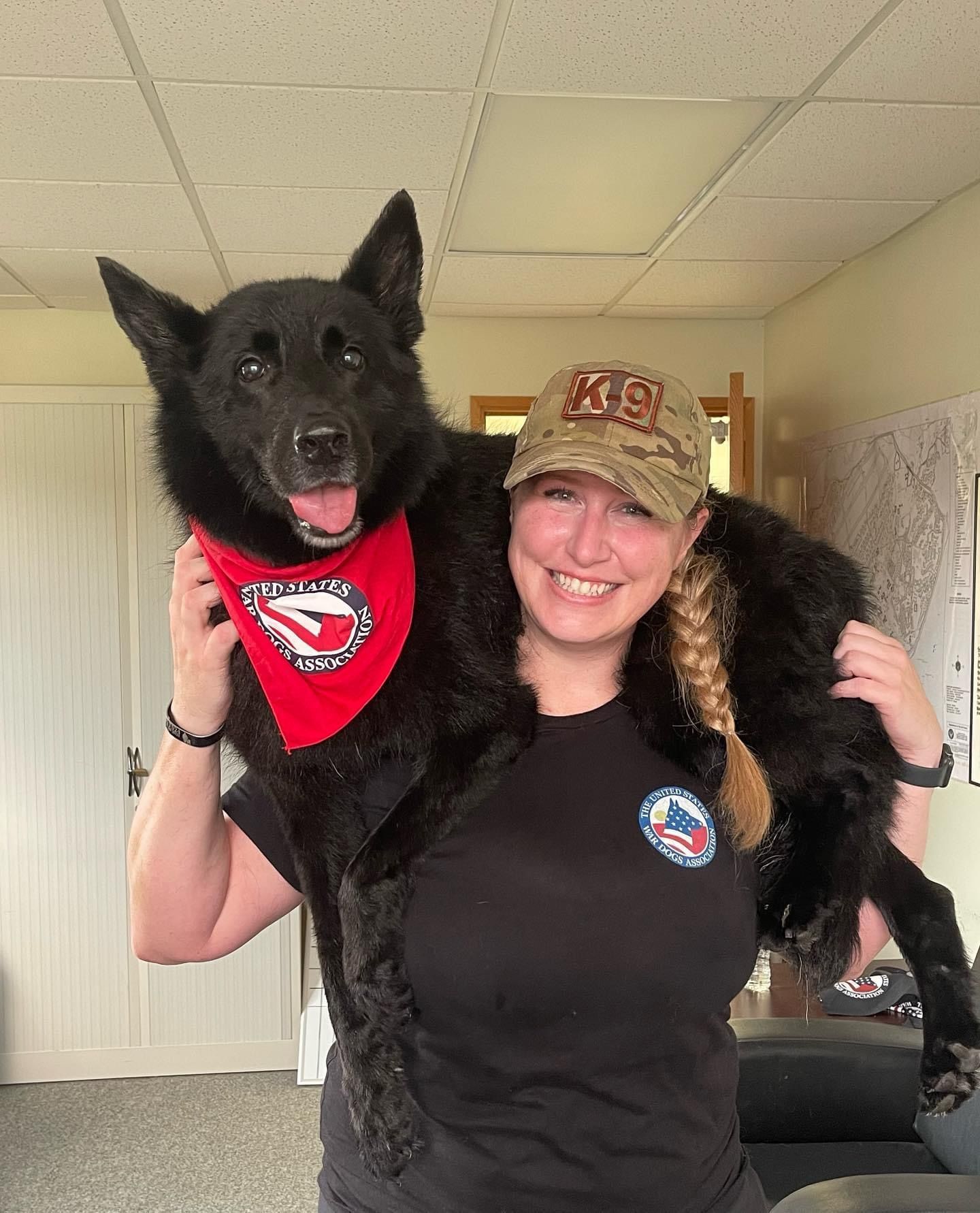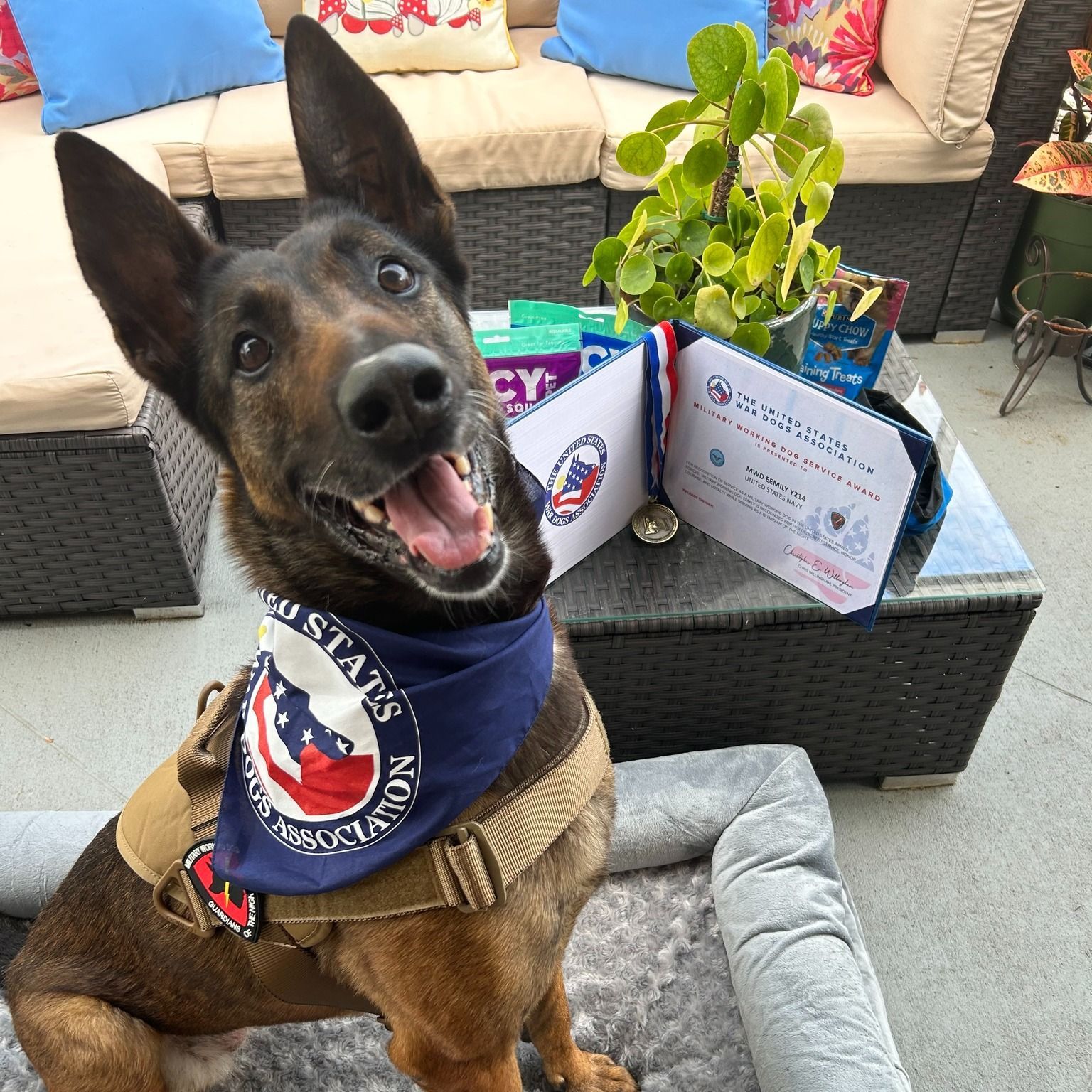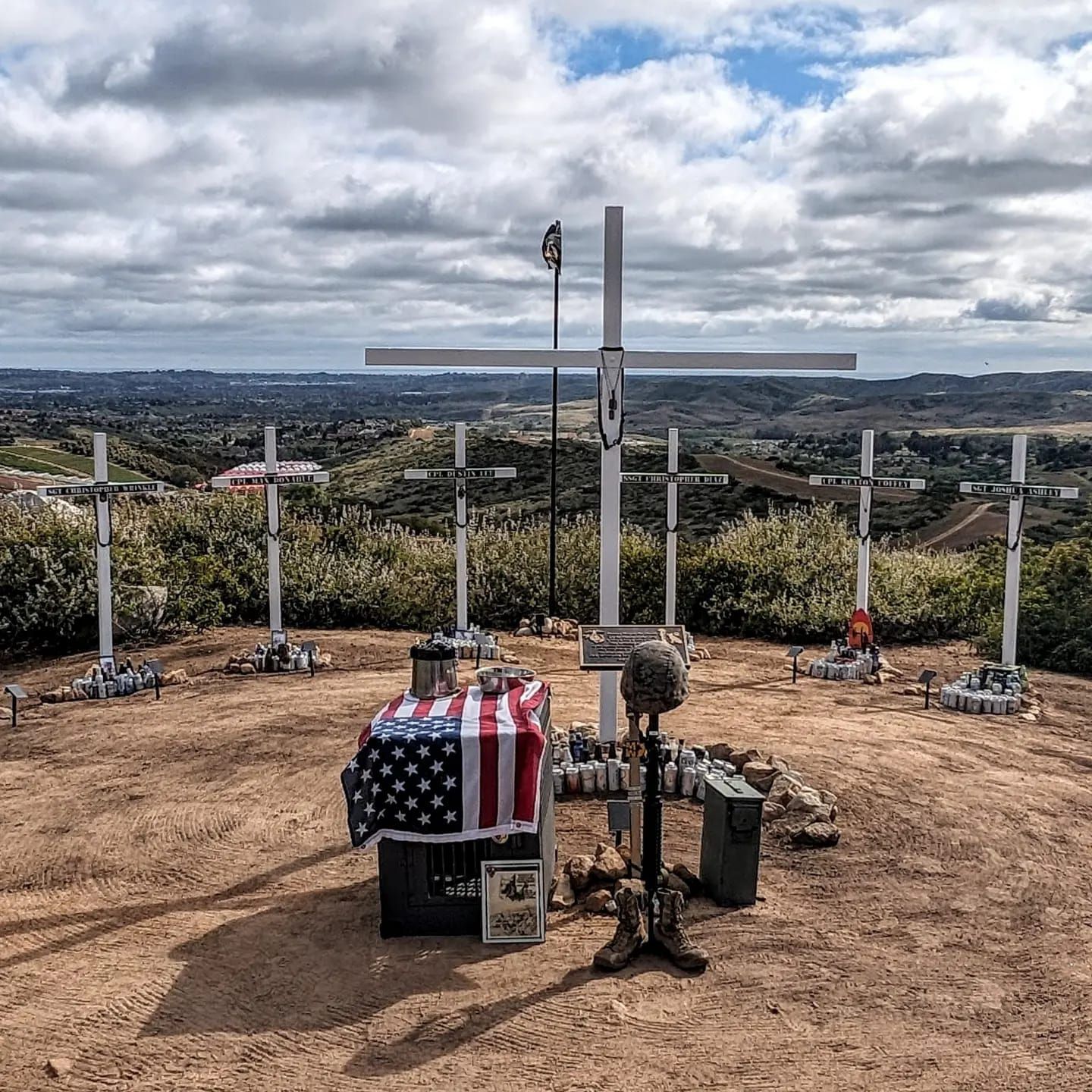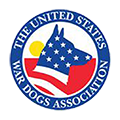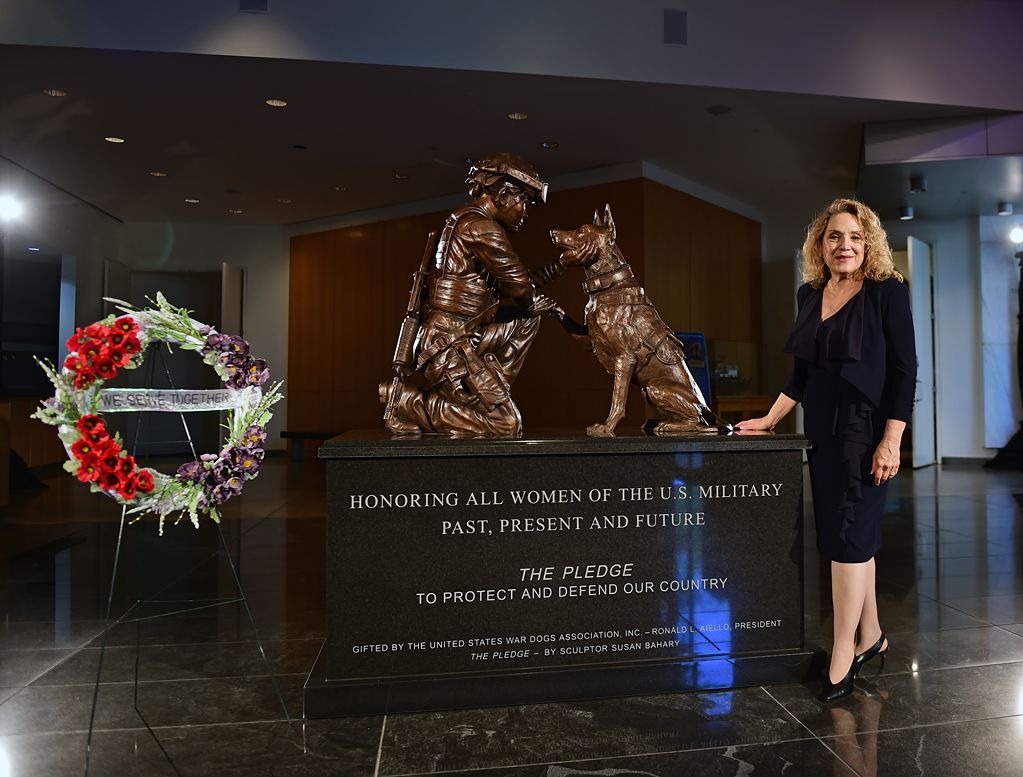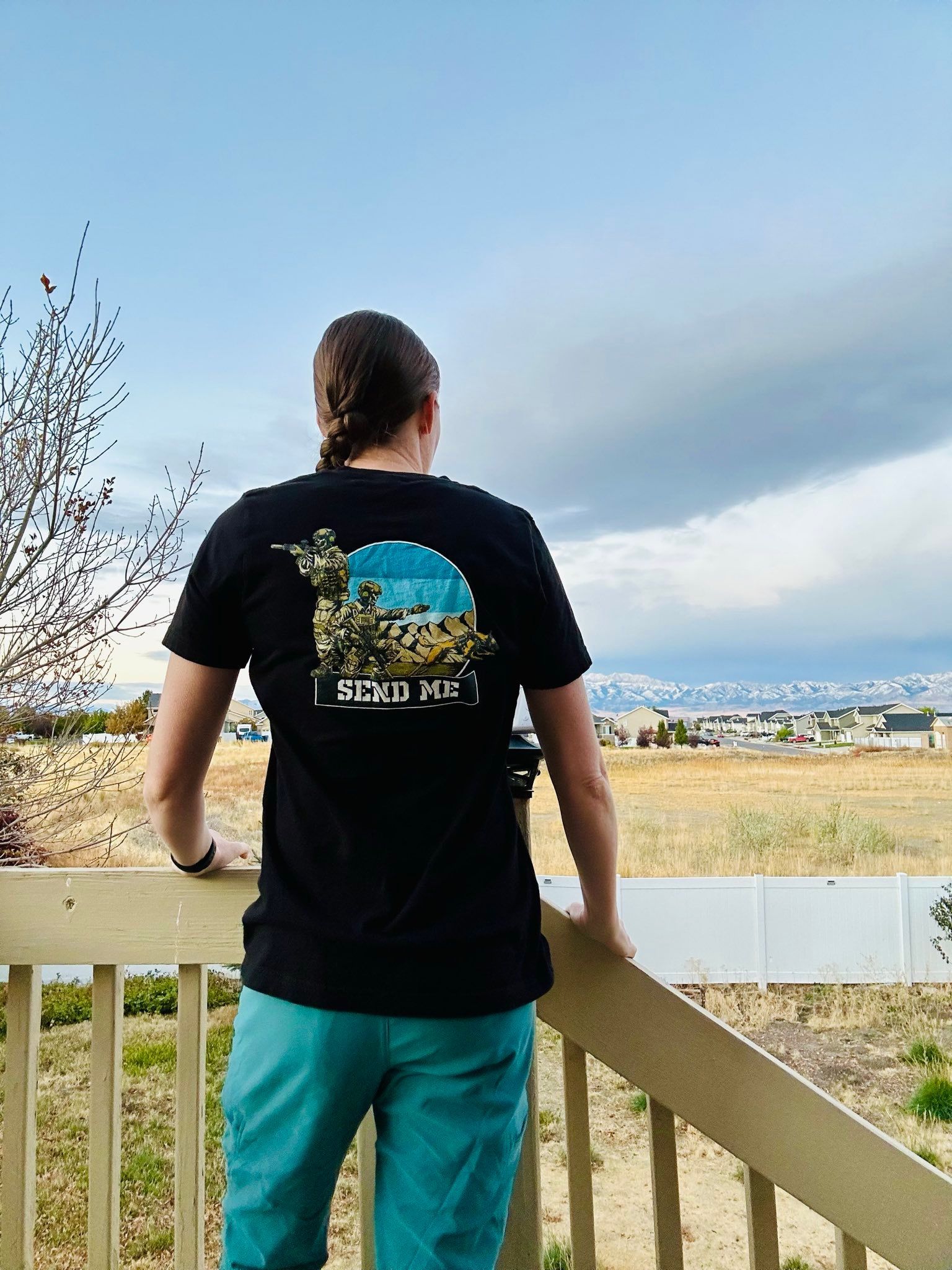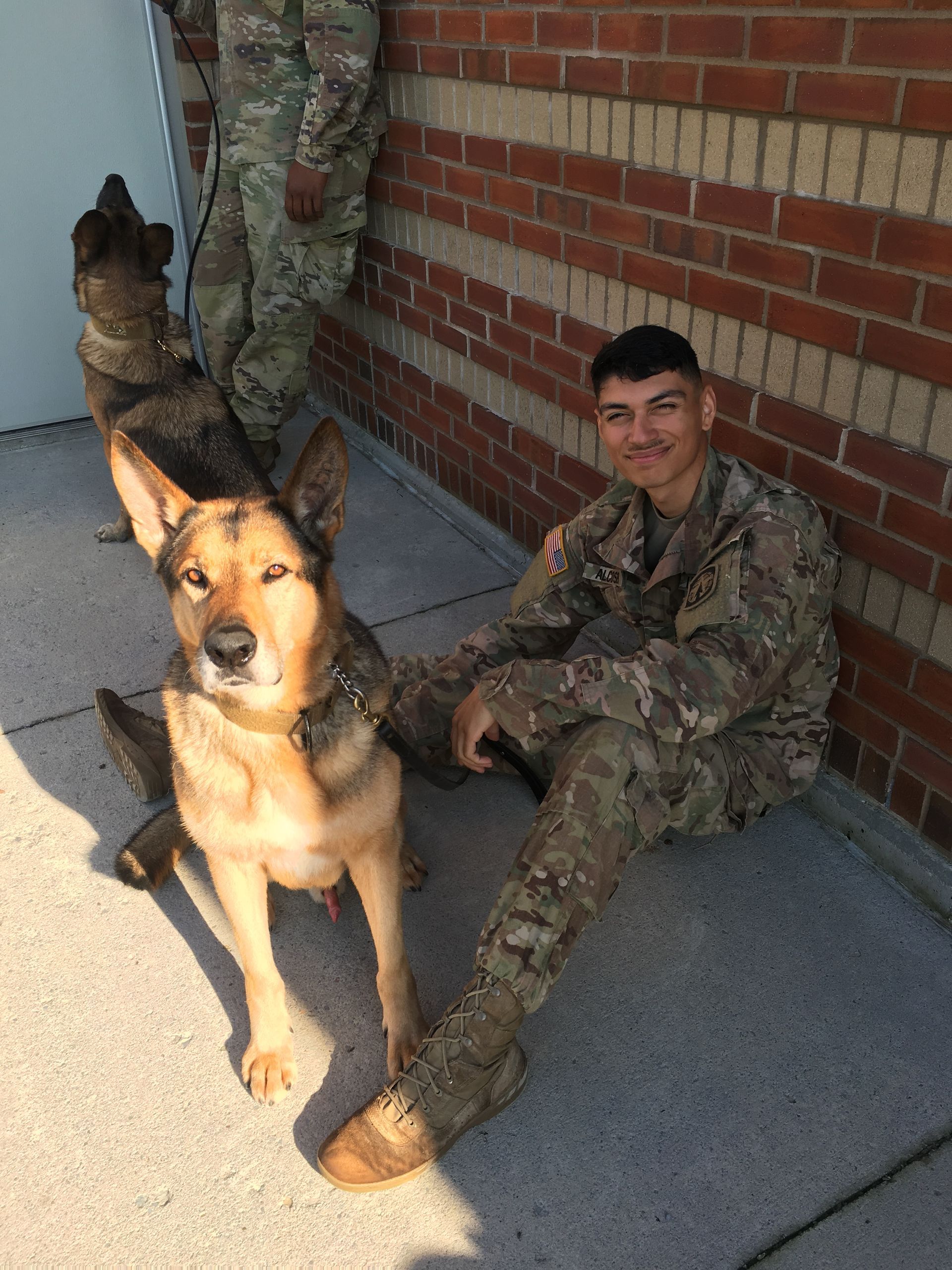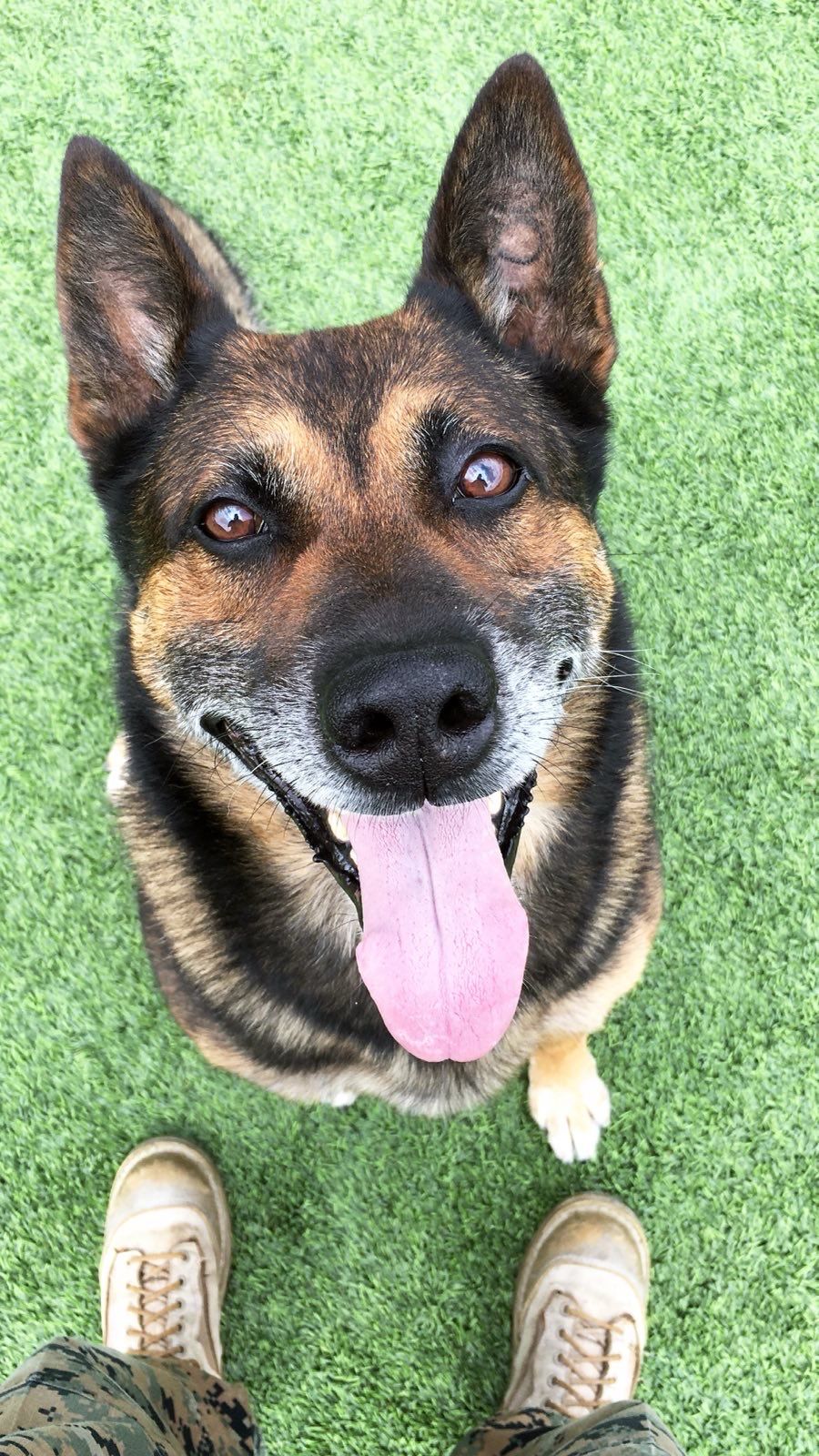
In Conversation With…
Former MARSOC multi-purpose canine handler Alex Schnell
The Marine Special Operations Command (MARSOC) represents one of the most elite fighting forces in the US military. Made up of specially trained, highly skilled Marines, MARSOC’s deployment cycles are of the most intense and dangerous in the world.
Dog handlers assigned to MARSOC not only bring with them the unique capabilities of K-9, they also train to the highest standards – matching the operators they work alongside to create some of the most efficient teams in existence.
US War Dogs board member and former MARSOC dog handler, Alex Schnell, opens up about his career with the elite force at one of the most frenetic and pivotal moments in the Command’s history and how his experiences have shaped how he spends his time as a civilian.
Military Heritage
Alex Schnell of Rapid City, South Dakota was the third generation in his family to choose a life of military service. “My dad was a Marine and my grandfather joined the US Army and fought in WWII”, recalls Alex. “I guess I always knew that a military career awaited me and as I came of an age where joining was possible, we were in a state of war, so there was a sense of urgency personally to do something to help.”
Alex joined in the spring of 2012 at the age of 19. “My older brother was a dog handler and that idea really piqued my interest. I enlisted with the aim of being a dog handler but there are never guarantees that your wishes will be granted.”
Alex joined the Marine Corps and attended Military Police School. “After my initial training, three spots opened up in the II Marine Expeditionary Force (II MEF) – the law enforcement battalion of the Marine Corps K-9 program. I was top of my MP class and had the physical attributes needed to be selected. My older brother was a senior handler in the unit and was able to get myself and two classmates a shot at joining the unit. Once we checked in, I had to perform to their high standards to make it.”
Alex completed the basic handlers’ course and spent six months in on-the-job training but there was no time to enjoy the seemingly carefree days of being student. “The unit had just returned from their rotation to Afghanistan where fellow dog handler, Joshua Ashley, had been killed and two Marines received the Purple Heart. It added a sense of seriousness to every training problem. We were training to fight. It was always in the back of my mind that I will be leading patrols soon.
“You grow up quickly in that environment. Some of the Marines that saw combat during that deployment had only been in the job a few months before they deployed and hearing what happened to Josh and the guys highlighted that the worst could happen to any of us. That hits different.”
After completing K-9 School, Alex was selected for the Specialized Search Dog (SSD) program, where he spent six months in training. “As I was completing SSD school, I started evaluating my options and heard about the multi-purpose canine (MPC) program with MARSOC. It was a voluntary post so I applied for a physical fitness test, practical application with one of their dogs, and an interview with the Program Manager and Master Trainer.”
MARSOC – A Living Legacy
MARSOC formed at Camp LeJeune in 2006 with the mission to recruit, train, sustain and deploy scalable, expeditionary forces worldwide to accomplish special operations missions assigned by the US Special Operations Command (USSOCOM).
MARSOC teams adopted the mantle of ‘Marine Raiders’ in 2015 in a nod to the Raiders in WWII, trained to make amphibious assaults. Marine Raiders are highly trained to execute complex, distributed operations in uncertain environments, achieving silent success and strategic impact.
K-9 capabilities were added into the MARSOC mix in 2007, when the first assets and program manager was placed in post, kickstarting the multi-purpose canine (MPC) program. The first MPC course was conducted in 2008, with the graduate MPC dog teams deploying in 2009.
Here I am, Send Me
Joining MARSOC as an MPC dog handler is a voluntary decision for Marines, who enlist on a five-year rotation that sees them train for six months, then deploy for six months.
Alex said: “Learning about the spot in MARSOC, it just felt right to me. Training in additional K-9 capabilities that would aid the fight and aid my usefulness was something I was very excited about.”
Before Alex began the robust initial MPC training which included an additional 15-week basic handlers’ course where he was introduced to his new dog – Ziggy. “We travelled around the US, learning all the additional skills that MPC handlers needed, from repelling; close-quarter combat and helicopter insertion and extraction. For a young man with a love of K-9 and a thirst to learn, I was literally living the dream.”
Alex was off to a flying start with Ziggy – a 55lb Belgian Malinois with an incredible drive. “Ziggy and I had a good thing going but another MPC returned from Afghanistan in December 2014 and was in need of a new handler. My master trainer felt that we would make a better pairing – that dog was Bass.”
Bass – a statuesque and striking Belgian Malinois – captured Alex’s attention straight away. “He had some serious stage presence and the most piercing eyes I had ever seen – they had a kind of predatory quality to them. But Bass was more than just a looker. Anyone that locks eyes with his intense stare can sense his intellect and see that Bass is no ordinary animal. We started training together and our bond formed quickly. I could tell he was going to be special.”
To galvanise their bond, MPCs and their handlers spent almost every waking minute together. “Bass came everywhere with me. Our first training together was the basic handlers’ course in March 2015 in Indiana and my first impressions of his intelligence were confirmed. It wasn’t just his intellect that impressed me.
“Bass has always had a human-like ability to understand complex situations and feed off of the emotions from myself and members of his team. Bass was always a puppy at heart - trying to play with the team members’ personal belongings, attempting to bait someone into a tug-of-war challenge with his toy, and having no awareness of how strong and destructive his tail was.
“The minute it was time to work, though, Bass’s body language and personality would change. Before missions, the team members would don body armor vests and check weapons and communication equipment while Bass would lay by the door, fully alert with ears forward, watching every move we made, giving the occasional soft whine to make sure we knew he was ready and that we wouldn’t forget him.
“I’ll always remember that being the place where our bond really grew. I knew this dog would go into the fight with me and that I could trust him with my life. That’s a big feeling.”
A week after graduating from MARSOC’s handlers’ course, Alex and Bass were paired with their new team of operators and would spend six months training with them before going on their first deployment. “It was a little intimidating at first. I had never deployed before and some of these guys had six tours under their belt. It made me want to be the best I could be for them. They were extremely professional and so capable at everything. They respected a good work ethic and they could see I wanted to be an asset to the team, so we gelled really quickly.
Six months of training and bonding as a unit has a profound impact on the capabilities of the MARSOC teams. And have a K-9 team integrated at this point deepens their collective understanding of one another and the skills each man (and dog) brings to the fight. US War Dogs president and former MARSOC K-9 program manager, Chris Willingham, explains: “This format elevates the standard tenfold. Traditionally, K-9 teams are lone rangers, attaching to deployed teams and earning trust on the job. With MARSOC, the dog team is integral, creating a truly cohesive unit that is unmatched in its effectiveness.”
Virgin Tour
“I had joined four years earlier”, recalls Alex when he describes his first tour. “I was raring to go.” Alex and Bass landed in Iraq in January 2016 and once they had acclimatised, they found their stride quickly. “We had trained so hard that it made the deployment easy. The saying goes that the more you sweat in training, the less you bleed in battle and that was entirely accurate for us.
“Of course, there were some cultural shocks, but the training really prepared us. We handled business and Bass showed his worth to the team. That was a special feeling.”
During that first deployment to Northern Iraq, Bass conducted over 350 explosive detection sweeps, many of which were of forward-stated positions where the MARSOC team had determined to conduct offensive operations against ISIS forces. Bass would search the entire area and any buildings for improvised explosive devices (IEDs) and would often lead the team into ISIS-controlled territory to recover downs unmanned aerial systems (UAS). “The team would not attempt recovery of this equipment without Bass leading the movement”, Alex recalls.
During one mission, Alex and Bass were attached to a mortar gunner position at a remote outpost, to support a major offensive operation against ISIS. At one point, they began taking accurate, sustained indirect fire from ISIS mortars and small artillery, within 30 meters of their position. With dirt, debris and fragments falling around them, they had to break down their weapon system and move to a new location – all with fire still landing in their vicinity. In the melee, Bass had to search out a new location for the mortar gunner, which he completed successfully, allowing the weapon system to be moved and the team to return fire, eliminating the threat.
“It was an intense, frenetic situation but Bass handled it like a pro. It was one of the hundreds of occasions where he would provide life-saving support and act as a true force multiplier.”
On returning from Iraq in July 2016, the original plan for Alex and Bass was to stay with their team and train for 12 months before deploying again. “There was a blip and the plan changed” explains Alex. “Bass and I were moved to work with another team, where we would train for seven months before deploying to Somalia.” But as their training was in full swing, tragedy struck MARSOC when a the KC-130 flight to a training exercise ended in disaster. The Yankee 72 crash in Mississippi killed seven Marine Raiders. “The Marines were all from my first company, one of which was on my previous team and some I had known for years.”
Alex and Bass were on a training package when Alex heard the news. “It was almost too much to process and you really don’t have the time to deal with the grief. I was only able to attend one of their funerals. The mentality is to get back to the fight and keep your head down. The mission drives you forward and you really don’t have time to heal that way. You don’t deal with any of it and it festers inside you.”
Just four months after the tragedy, Alex and Bass would deploy again and be faced with yet more dangerous and frenetic warfare as they tackled Islamic extremists and the tyranny they were causing in the country.
During the six-month tour of Somalia, the dog team conducted 16 raids targeting high value individuals in the violent extremist organizations operating in the region.
“Every mission included ground movement in vehicles – often six to ten hours from our base. The rigid, uncomfortable tactical vehicles were less than homely for such journeys, especially as Bass and I would ride in the bed of the trucks for speed of employment to search danger areas along our route. Bass would lay on a thin mat and was constantly bounced from side to side; stuck with thorns from branches that broke off into the bed and covered in a heavy layer of red dust, kicked up from the vehicles in front of us.
“Most dogs – and people, for that matter – would be so exhausted and upset by the time we arrived, they would struggle to do their job. Bass’s resilience and mental toughness were obvious when he would perform to his usual gold standard, once we arrived at the objective area.”
During one mission and under cover of darkness, the vehicle Alex and Bass were travelling in began taking small arms fire as they approached their objective. “An armed fighter fled the building in our objective area, heading to an open field, while continuing to fire in our direction. We pursued him and as we got closer, we engaged and wounded the fighter. Once we knew he was wounded – but still armed – Bass was called up. I targeted Bass on the area, where he located the individual in the darkness and was able to bite and hold him until the team members were able to get to him.”
During their deployment in Somalia, the partner nation force that the MARSOC team was training, conducted a critical and lifesaving operation that liberated 30 local children who had been kidnapped by the Islamic extremist group, Al Shabaab. The unit was able to facilitate the safe extraction and return of all the children.
“That day really stood out for me”, notes Alex. “It certainly wasn’t an average day but was extremely rewarding to do something that provided such immediate help and care to those children and their families. It was also a stark reminder of the depths of evil the enemy would sink to, which drove us all on to continue the mission.”
Upon returning to the US from Somalia, Alex and Bass were assigned to a new MARSOC team when a unique mission presented itself. It was to be their most dangerous and kinetic deployment yet and, with six months to train with their new team, Alex new they had to be laser-focussed on what was to come.
Bronze Star
Alex and Bass deployed with their MARSOC team to Afghanistan in January 2019, with the remit of taking down strategic Taliban leadership. “At this point in our career Bass had already made a reputation for himself through his proven experience on his previous deployments. Bass and I had already seen combat together and I knew how he reacted in stressful situations, but I had no idea how much of an impact he was going to have on me and the entire team during this deployment.” //
All 34 missions undertaken by the team on this tour were night-time helicopter insertions. “It was legitimately special operations, encompassing everything we had trained for”, recalls Alex. But even as they entered the country, Alex knew this deployment was going to be different.
The team were based in a small camp outside a major city in the south of the country. “Everything was concrete or gravel and security was top priority, 24/7. These conditions made it impossible for me to keep up with Bass’s training, as finding areas to bury explosive training aids to replicate realistic threats was almost impossible.
“It also made bite training and physical conditioning difficult because Bass’s paws would get torn up on the concrete and rocky terrain. The fact that we couldn’t maintain Bass’s proficiency with regular training drills speaks to his caliber as an elite dog, as his skill and attention to detail never once wavered.”
The majority of the missions were crammed into pockets of time in the month when the night sky was at its darkest, giving the team their optimum element of surprise. Consecutive nights of work meant rest was near non-existent, leaving the team physically exhausted. “Bass also had his own unique set of challenges to face during these night operations. Our night vision equipment allowed us to manoeuvre almost seamlessly in the pitch darkness whereas Bass had to rely on his natural night vision, which was pretty limited in that level of darkness.
“For the majority of each mission Bass was also attached to my hip by a short tether to his collar. He strictly reacted to my movement and stayed by my side, trusting every step I led him on until he was sent out front to work. During many of these missions, kinetic action took place whether it was gunfire, explosions, demolition charges, or rockets. I want to really stress this part about Bass because it wasn’t until after many of these missions had occurred that I realized this: it takes an absolutely incredible animal to be tethered by a short lead to the neck and follow his handler around in the pitch dark while gunfire and explosions are happening all around him, with no context to understand what is happening. Even through the most stressful and confusing situations Bass never disrupted my movements by trying to get away in fear but remained steadfast at my side, almost as if he and I were one as we manoeuvred around the battlefield.
“Along with his discipline and obedience being unmatched, the second I reached down to unclip him and give a command, Bass would immediately begin the task with no hesitation.”
In April 2019, the team left for a routine mission to locate members of Taliban leadership within a remote village in the mountains. “We were told there might be two or three bad guys up there. On approach to the first of seven buildings in this village compound, we immediately took fire.”
The team were engaged in fierce fighting for over four hours – all the time with Bass on his short hip leash, following Alex and deploying to detect several hundred pounds of munitions and explosives when required to.
“The last building in the compound was the biggest struggle. One of our partner nation forces operators was killed by small arms fire as they attempted to enter the building. We moved forward to recover the casualties and I sent Bass ahead to clear the way for the team, who successfully eliminated all seven enemy fighters who were barricaded inside.
“We had been expecting less than a handful of enemy that night but 14 were killed in action.”
“Throughout this fraught and dangerous situation, Bass remained steadfast and unflappable in the chaos. Alex recalls: “He was an extension of my body during these missions. The first time we took contact from the enemy fighters that night there was no time to give Bass obedience commands or control his movements. As I manoeuvred around the battlefield, Bass reacted with me, feeding off my emotions and patiently waiting for me to call him to work.
“Towards the end of the mission Bass and I were holding security on the doorway of a building where we knew an unknown number of armed, enemy fighters were inside. Other members of the team were using demolition and grenades to mitigate the threat as much as they could before we would have to go inside.
“I still remember hearing the order over the radio for me to “get Bass inside and clear the building.” In the most dangerous mission, at the most dangerous time, who did the commander call for? Bass.
“To be honest, that entire night I was pretty scared, but it was easy to overcome that fear because I knew that I was going in with Bass and the rest of my team behind me. Once I gave Bass the command he took off like a rocket, straight inside the building, with me attempting to keep up. There were seven enemy fighters inside. Bass had bit one and was holding him as the rest of the team entered and were able to safely eliminate the threats.
“I truly believe that without Bass entering first, an American would have been injured, and that American would have most likely been me.”
Staff Sergeant Alex Schnell was awarded the Bronze Star for his actions during that mission and Bass has been formally recognized with the Animals in War and Peace Medal of Bravery, for his career of courageous service.
Once Alex returned from Afghanistan in July 2019, he looked ahead to completing his time with MARSOC and leaving the Marine Corps for life as a civilian. “I officially adopted Bass the week before I left in October 2019”, says Alex. “Bass did four deployments and was seven years old when he retired from military service. He had worked so hard – I was committed to making sure my brother in arms would be a very spoilt son at home.”
Home Depot
Alex accepted a job as a civilian trainer at Lackland Air Force Base so he and Bass, along with his wife Maddie, moved to Texas. “I tried out a couple of different roles, training MWDs at Lackland and working with TSA dogs too. I decided to take the leap and set up my own business, training pets and helping owners to troubleshoot some common but fixable issues with their K-9s.”
Ivy League K-9 Academy has become Alex’s new day job, but Bass continues to play an active role. “He is so calm and confident that we can rely on Bass to be a distraction dog for our dog ‘students’ who are dog reactive or have some socialization problems. It’s cool to take Bass to Home Depot instead of riding on the back of an armoured vehicle. It’s a huge shift for both of us but we are adjusting well to ‘normal’ life.”
As with so many veterans though, Alex recognises the struggles of adjusting to normality and the overwhelm of being faced with demons that were easier to stuff down when the mission was the focus. “I have found huge comfort and strength in giving back to the military community through working with two non-profits who support veterans and MWDS.”
Alex helps to run non-profit, Talons Reach Foundation, with former MARSOC operator and Navy Cross recipient, Nick Jones and three other special operators. Talon’s Reach aims to support ex-special forces operators to deal with the huge emotional and mental challenges that come with life with an elite fighting force.
“Part of the mission is highlighting that it’s ok to show vulnerability and to seek help. A lot of guys turn to alcohol but it’s just a mask. Family supports you, of course, but that ‘head down – keep going’ mentality is widespread within the military, particularly the special forces branches. It’s when people step away from the military life that it hits… that’s why there are 22 veteran suicides a day in the US.”
The organization takes small groups of former operators on retreats where they learn a range of therapies and classes to shed light on how the brain reacts to trauma and the operator’s lifestyle. “We use art therapy, breathing techniques and yoga to help the guys (or ‘eagles’) to tune into their bodies and minds. It feels great to support this community and do something to turn the horrific tide of veteran suicides and give individuals control of their lives again.”
Alex also sits on the board for US War Dogs Association. “I received care packages from War Dogs while I was deployed and when Chris Willingham asked me to be a part of the team, I was truly honored. Supporting the K-9 community gives us all a real buzz and it has really helped my transition out of military life to stay connected in this way.”
His constant companion throughout everything is of course, Bass. “Our shared experiences and the bond we have is difficult to put into words but he definitely helps me through any low moments. Looking back on our active duty together, there is no way to say for sure how a situation would have resolved if Bass hadn’t been there, but I can say with 100 per cent certainty I would not have been able to react as confidently and courageously without him at my side.
“That fact is as true today as it was, entering the fight. It was him and me and that’s how I like it.”
